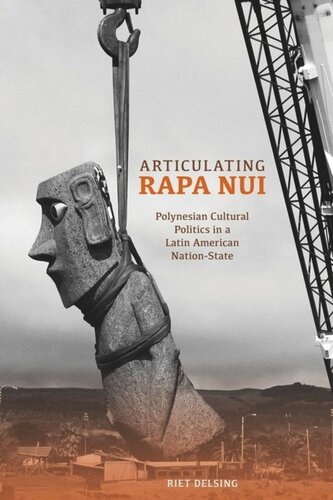

Most ebook files are in PDF format, so you can easily read them using various software such as Foxit Reader or directly on the Google Chrome browser.
Some ebook files are released by publishers in other formats such as .awz, .mobi, .epub, .fb2, etc. You may need to install specific software to read these formats on mobile/PC, such as Calibre.
Please read the tutorial at this link: https://ebookbell.com/faq
We offer FREE conversion to the popular formats you request; however, this may take some time. Therefore, right after payment, please email us, and we will try to provide the service as quickly as possible.
For some exceptional file formats or broken links (if any), please refrain from opening any disputes. Instead, email us first, and we will try to assist within a maximum of 6 hours.
EbookBell Team

4.7
56 reviewsIn this groundbreaking study, Riet Delsing narrates the colonization of the Pacific island of Rapa Nui and its indigenous inhabitants. The annexation of the island by Chile, in the heydays of world imperialism, places the small Latin American country in a unique position in the history of global colonialism. The analysis of this ongoing colonization process constitutes a “missing link” in Pacific Islands studies and facilitates future comparisons with other colonial adventures in the Pacific by the United States (Hawai‘i, American Samoa), France (Tahiti), and New Zealand (Maori and Cook Islands).
The first part of the book surveys the history of the Chile–Rapa Nui relationship from its beginning in the 1880s until the present. Delsing delineates the Rapanui people’s agency along with their cultural logic, showing their resilience and will to remain Rapanui— indigenous Pacific islanders rather than an ethnic minority forcefully integrated into the Chilean nation-state. In the second part, the author describes the Rapanui’s contemporary emphasis on the revitalization of their language, traditional concepts about land tenure, a unique corpus of material and performative culture, renewed contact with other Pacific island cultures, and creative acts of resistance against Chilean colonialism. Emergent in her analysis is the effect of Rapa Nui’s vibrant tourist industry—commodification of Rapanui difference is creating the possibility to loosen economic and political ties with Chile.
Drawing on statements of several Rapanui, she concludes that over the past few decades they have acquired a different kind of interpretive power, based on which they are making choices that serve them as a people on the road to cultural and political self-determination. Contemporary Rapa Nui is thus a modern, articulated place, marked by spirited identity politics that show the resilience and adaptability of the indigenous people who inhabit this island.